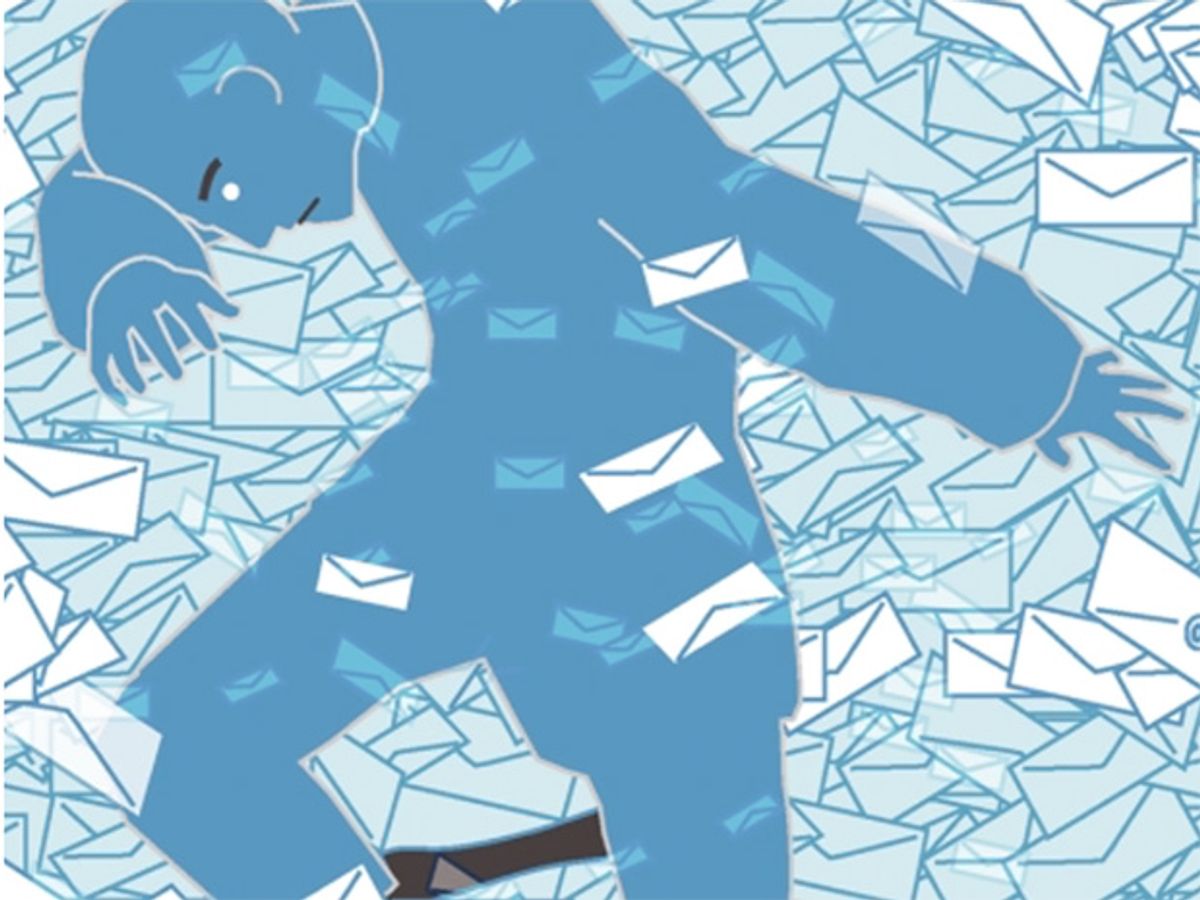I read a news item recently about the CEO of a communications company who had banned e-mail for his employees. I was interested, amused, alarmed, and appalled—maybe in that order.
I tried to remember my first e-mail message. Sadly, I can’t. It seems as if it has always been a part of my environment. It’s hard to recall the times when all electronic communication went through the telephone as voice. No one was ever there when I called, and there was even a day when answering machines weren’t ubiquitous. How did we exist? Amazingly, we did.
In the early days of e-mail, before the Internet became widespread, there was a small fraternity of people who were “on e-mail.” It was a badge of distinction. I got few messages, but they were all from engineers and computer scientists whom I knew. I rather liked it that way. It was a secret form of communication among us nerds.
That community of users steadily grew. As late as 1992, however, I recall knowing researchers who still didn’t have e-mail addresses. For a while there was even an inverse pride in not being electronically accessible. But none of this abstinence lasted long. Soon—all too soon—the public got wind of e-mail.
At first I was reluctant to share this great secret with people outside the technical community. After all, it was our thing. But in a short time I began to appreciate the great benefits of Metcalfe’s Law—that the value of a network grows with the square of the number of users. My own value was proportional to the number of people I could potentially reach, and that quickly became an enormous number.
Then came a period of wonder. I received e-mails out of the blue from long-lost friends—classmates from grade school whom I had long ago forgotten, former employees who wanted to let me know what they were now doing, and neighbors who had moved to other cities. I heard from strangers who had comments on things I had written and from engineers in faraway countries with questions. Every day it was an adventure to open my e-mail. What surprises would await me, I wondered.
Alas. The first dark clouds came with mailing lists and attachments. The number of messages began to grow, and many of them didn’t really seem to be for me. I started to get large files that I never had the occasion to open. I began to get a lot of broadcast messages, such as “someone has left his lights on in the parking lot.” I started to think that maybe that person’s battery should be allowed to run down instead of taking the time of thousands of e-mail recipients.
Still, it was O.K. I didn’t even have any premonition of disaster when I got my first Nigerian scam message. I confess that I read the plea about impounded money with a certain sympathy, even though I had no intention of getting involved. I didn’t recognize this first harbinger of the dark ages to come.
It happened so quickly. It’s probably only in the last two or three years that spam and viruses have consumed our beautiful e-mail system. I lament the lost, irretrievable innocence of those early days. What we have now is an inverse application of Metcalfe’s Law—that the more people you can access, the more people there are who can access you and, because there will be some percentage of bad behavior in that group, the less value the network has. I think now that Metcalfe’s Law of network value versus number of users is a bell-shaped curve. Beyond some threshold number of users, value begins to decrease.
My sense of wonder is long gone. I’m reluctant to open my e-mail. Almost none of it is for me anymore. I’m afraid that I will miss the few important messages in the blizzard of offensive commercial entreaties.
Now I’m mad. I want to open the window and shout out to the world that I’m not taking it anymore. I’m mad at the spammers, and maybe even madder at the people who succumb to the spam and make it worthwhile for the spammers. I’m mad at the impotence of the government to stop it. I’m mad at us technologists for the lack of a solution. I’m even mad at myself, though I’m not sure why.
So back to the CEO who banned e-mail. I understand where he’s coming from, but he has a bad idea, and I wouldn’t want to work at his company. I myself have a better idea. We start all over. We engineers create a new e-mail system just for ourselves. Maybe it just runs on Unix, and it has a very complicated command-line interface. You have to know your stuff to use it. Sound familiar?
